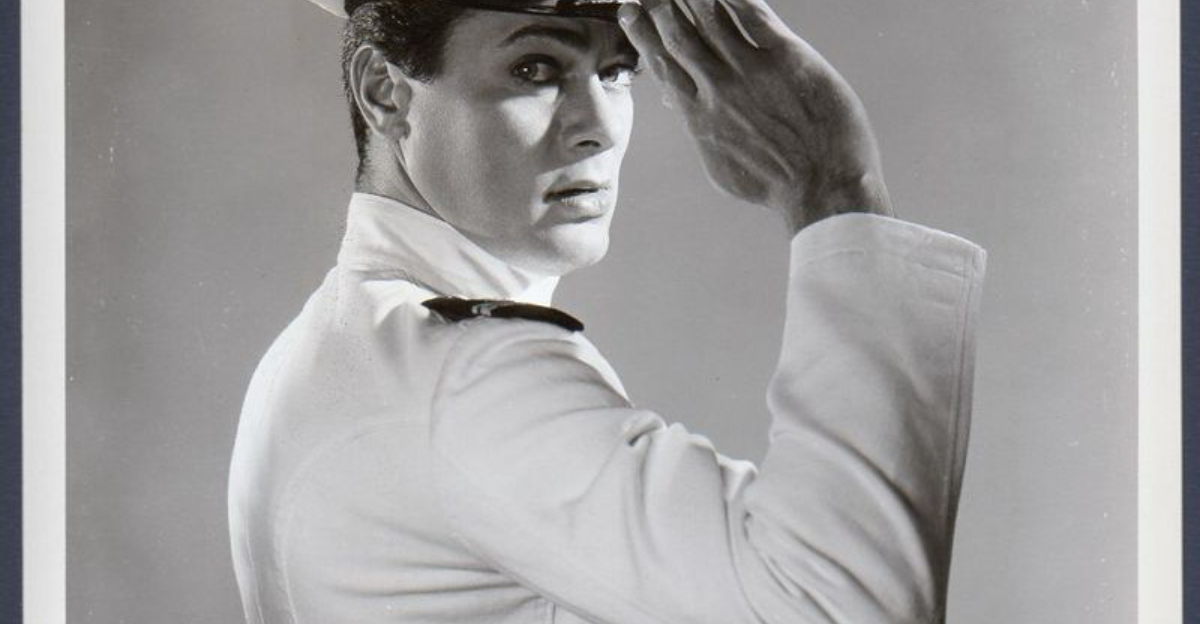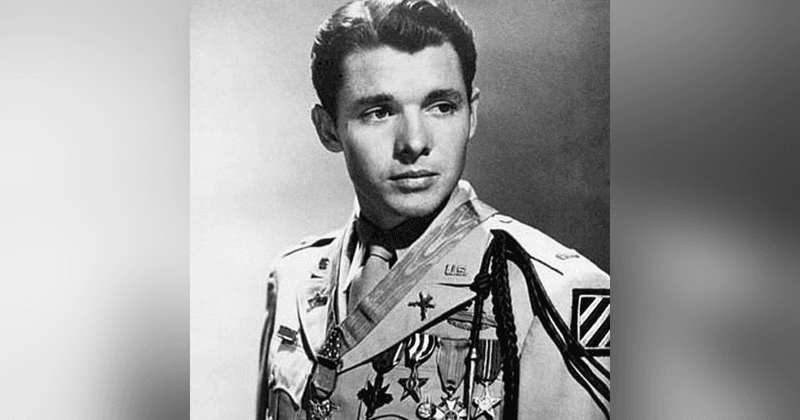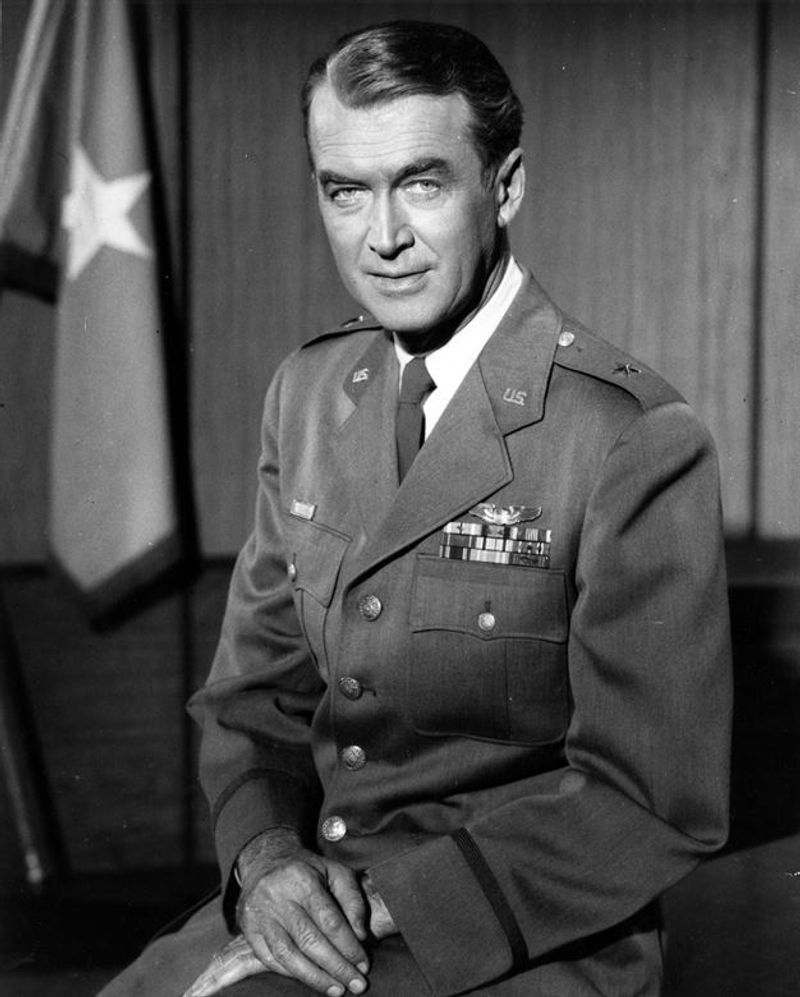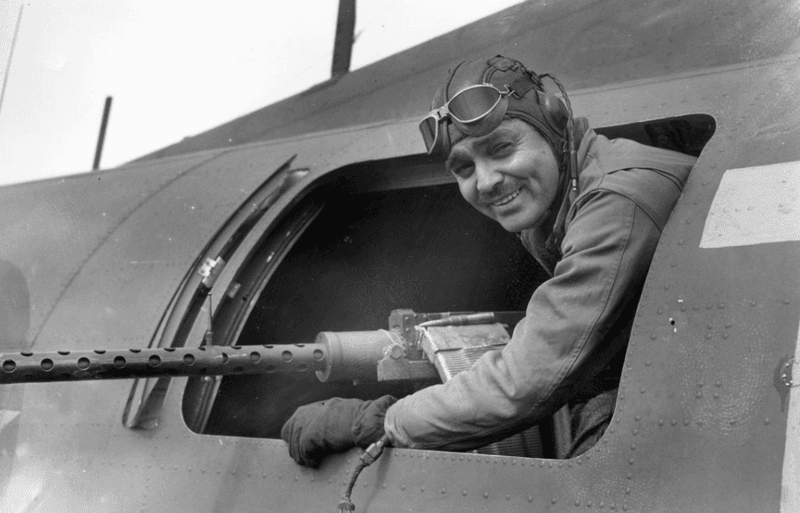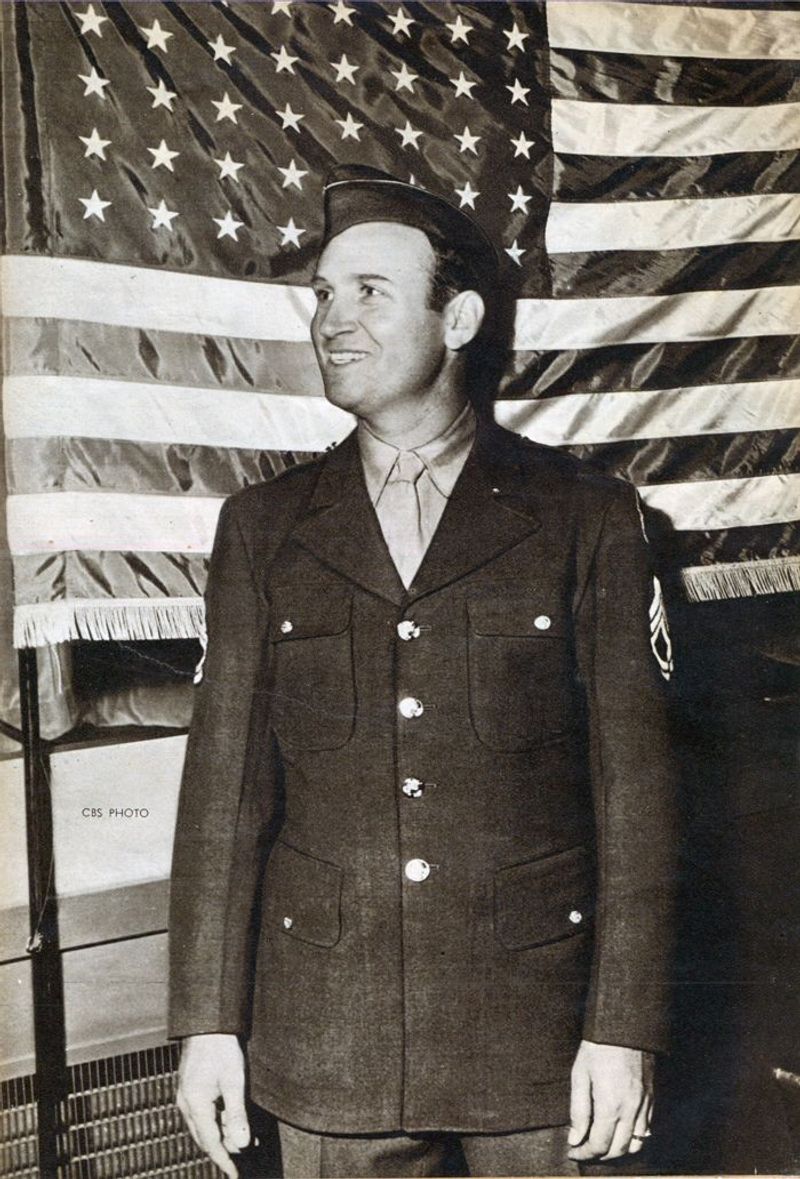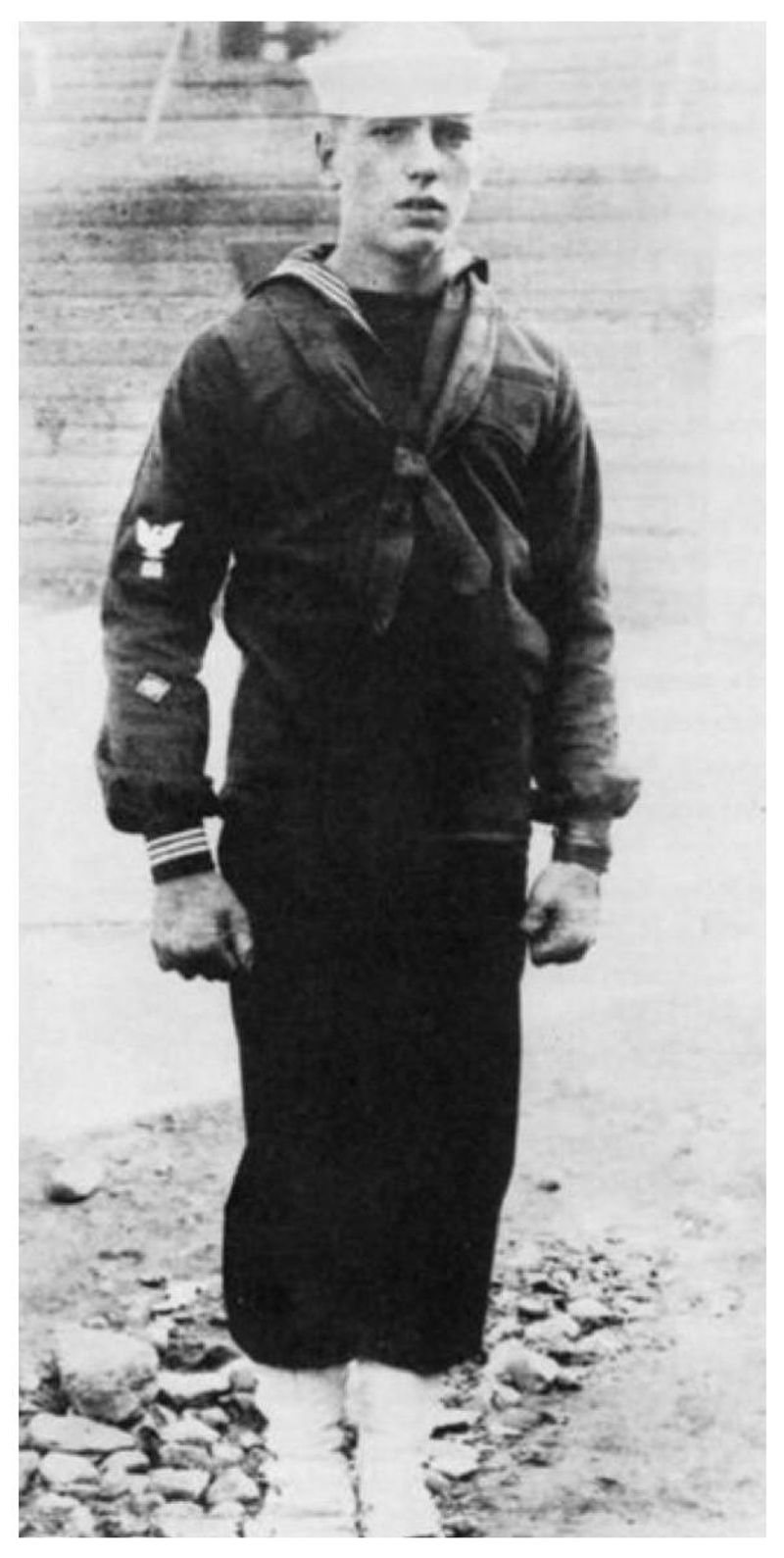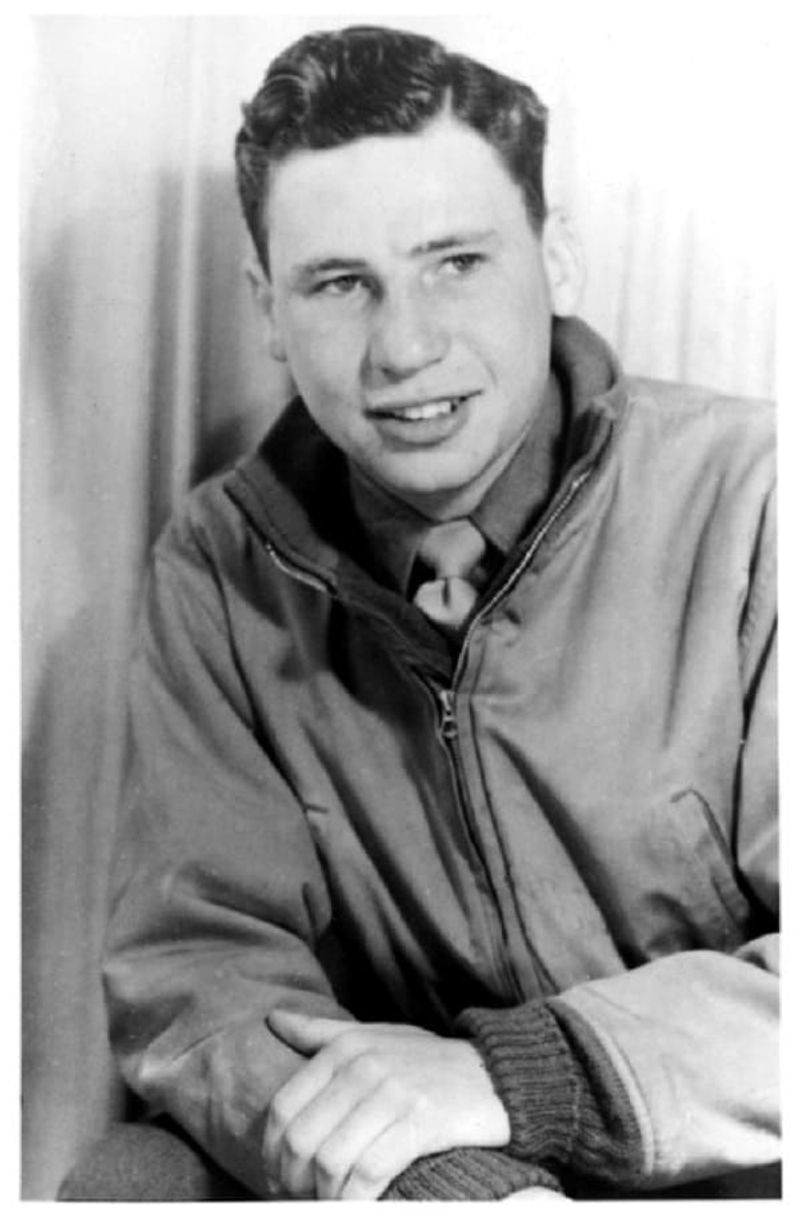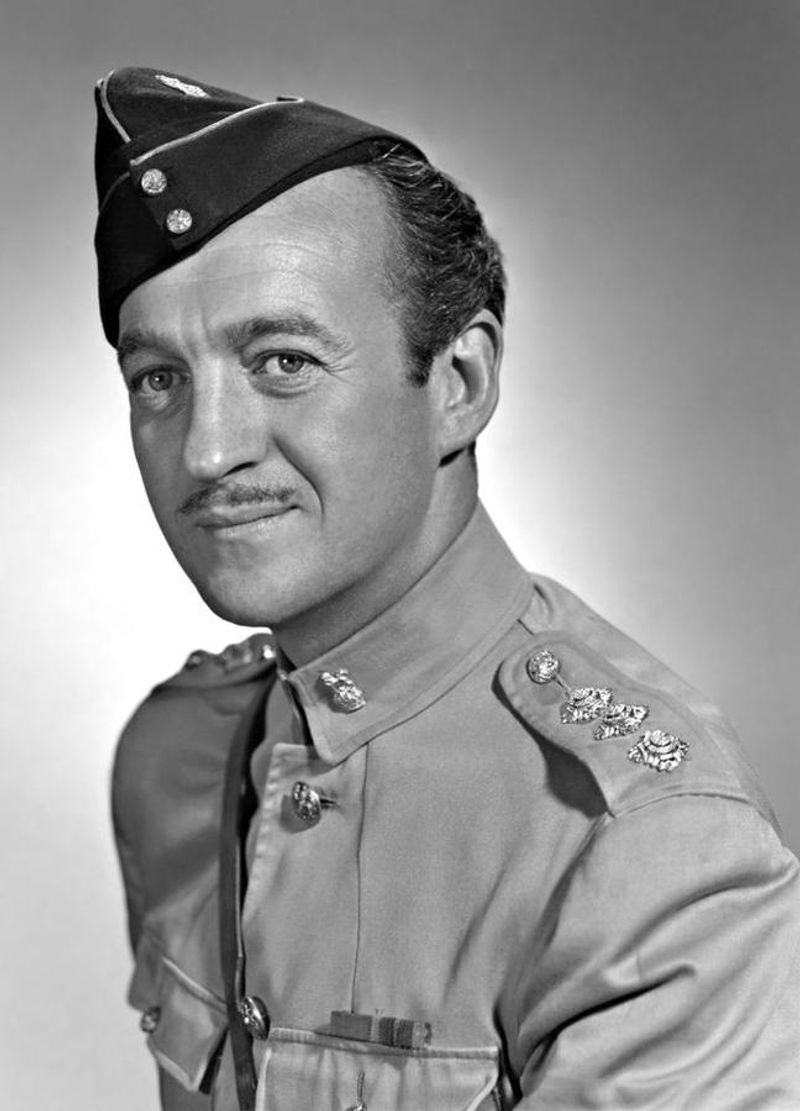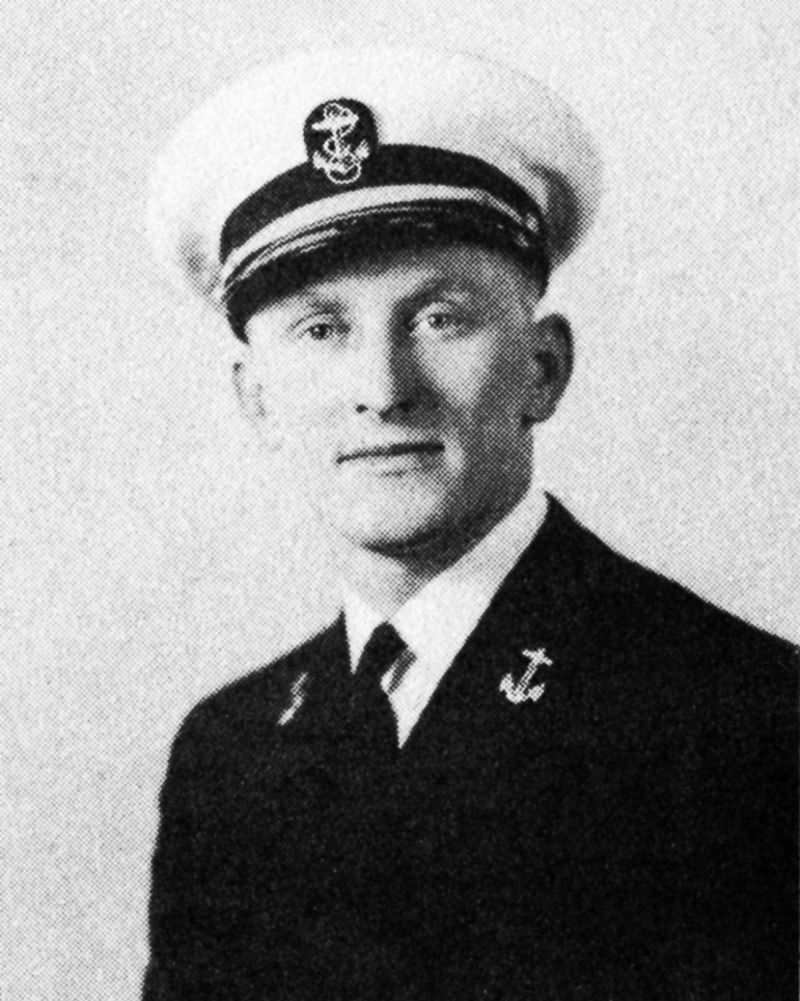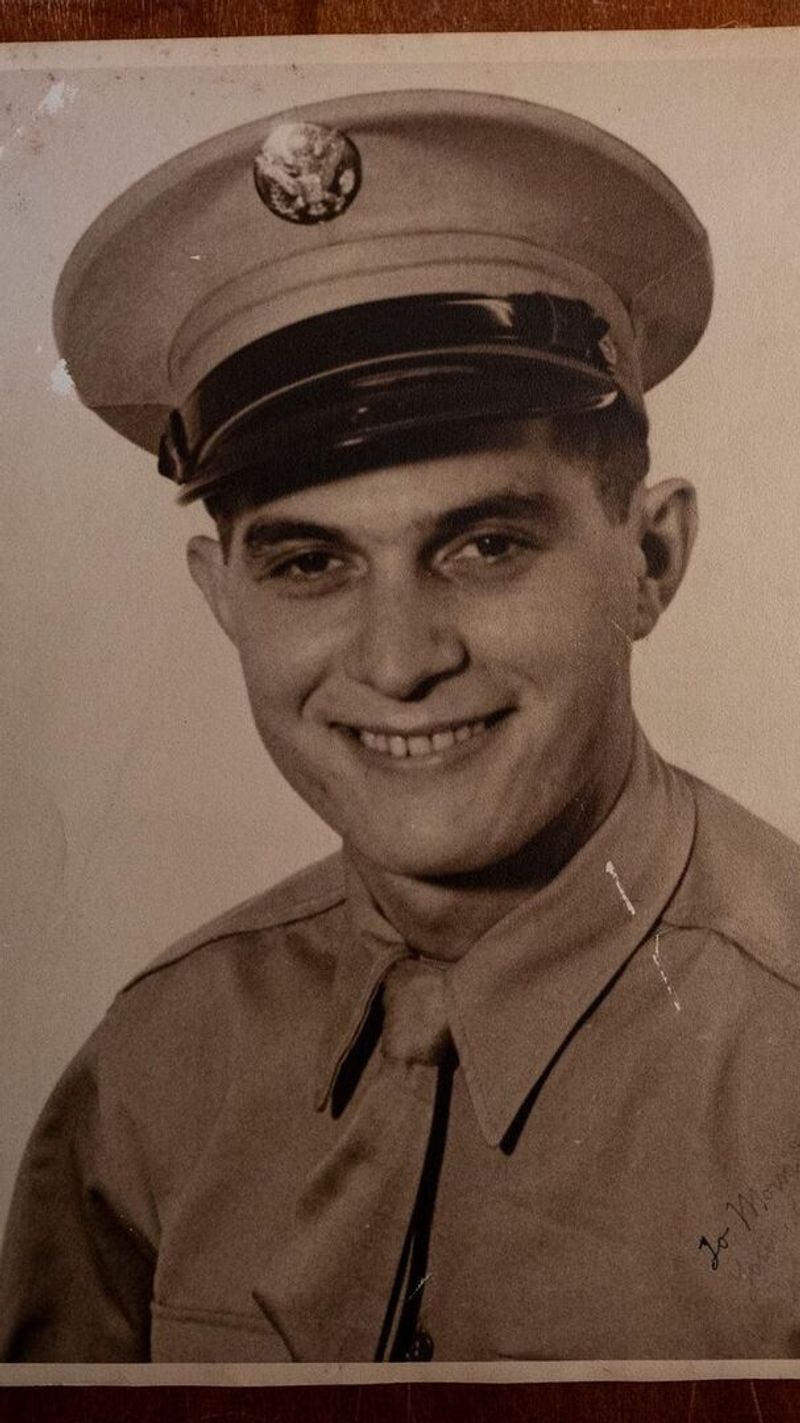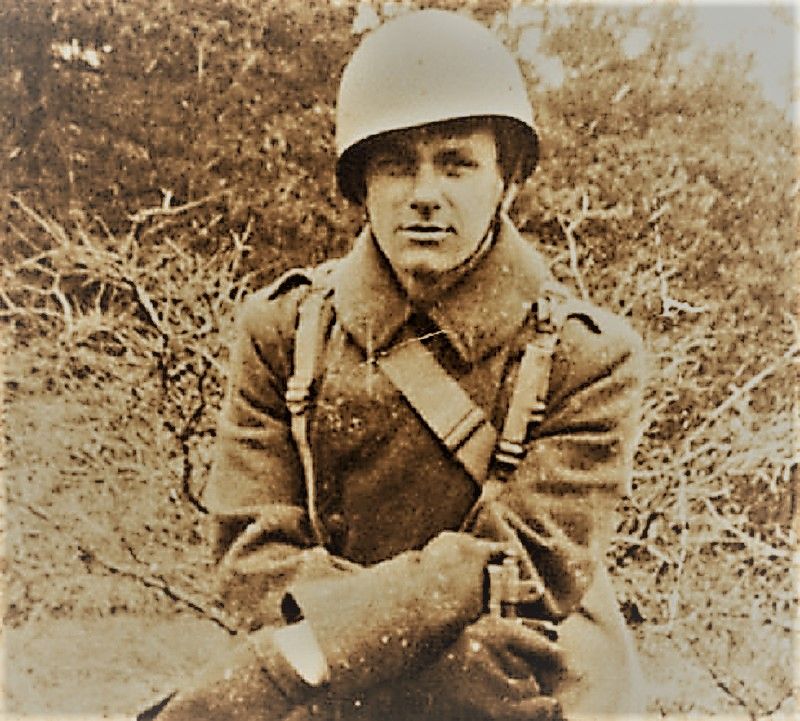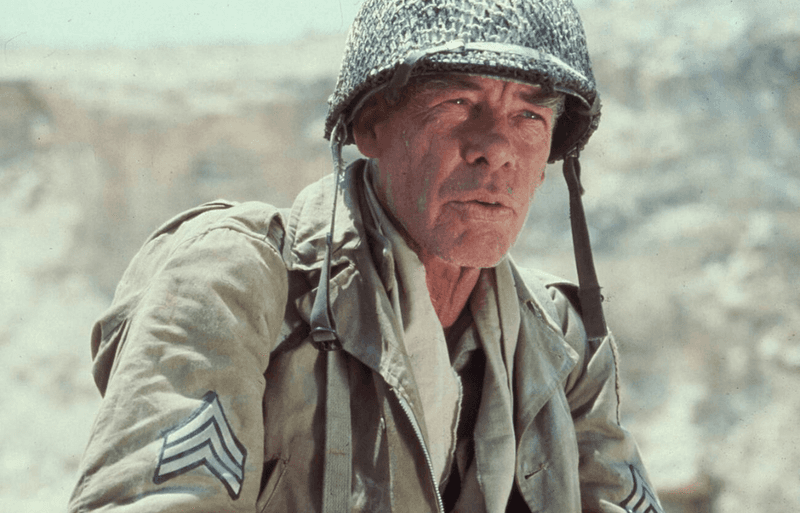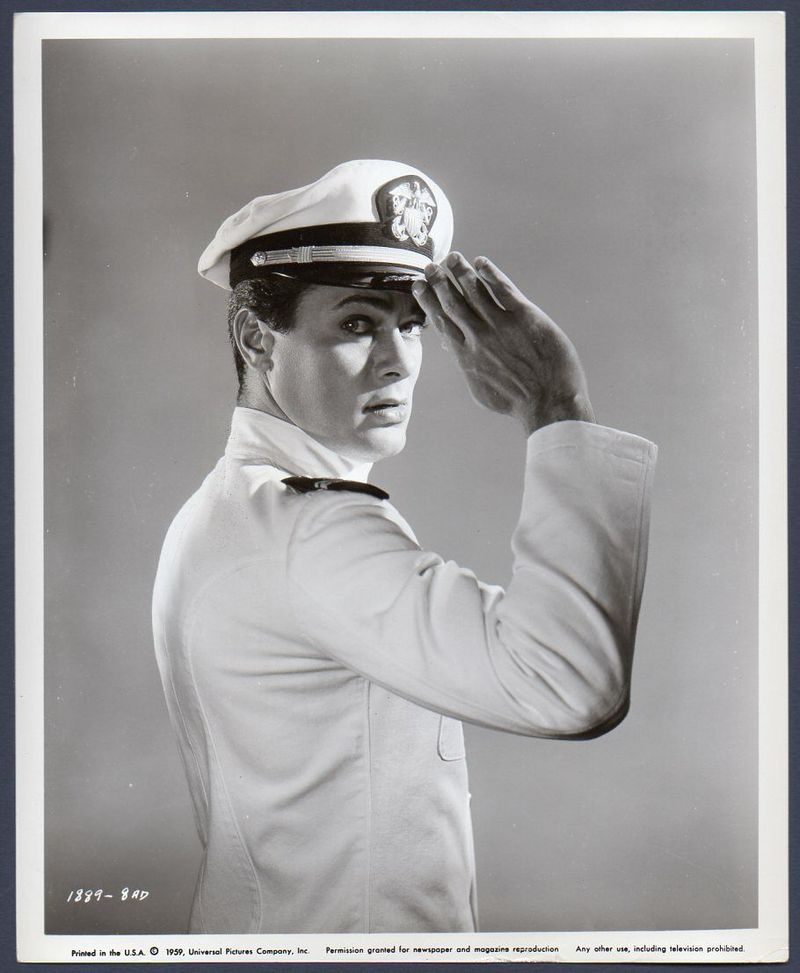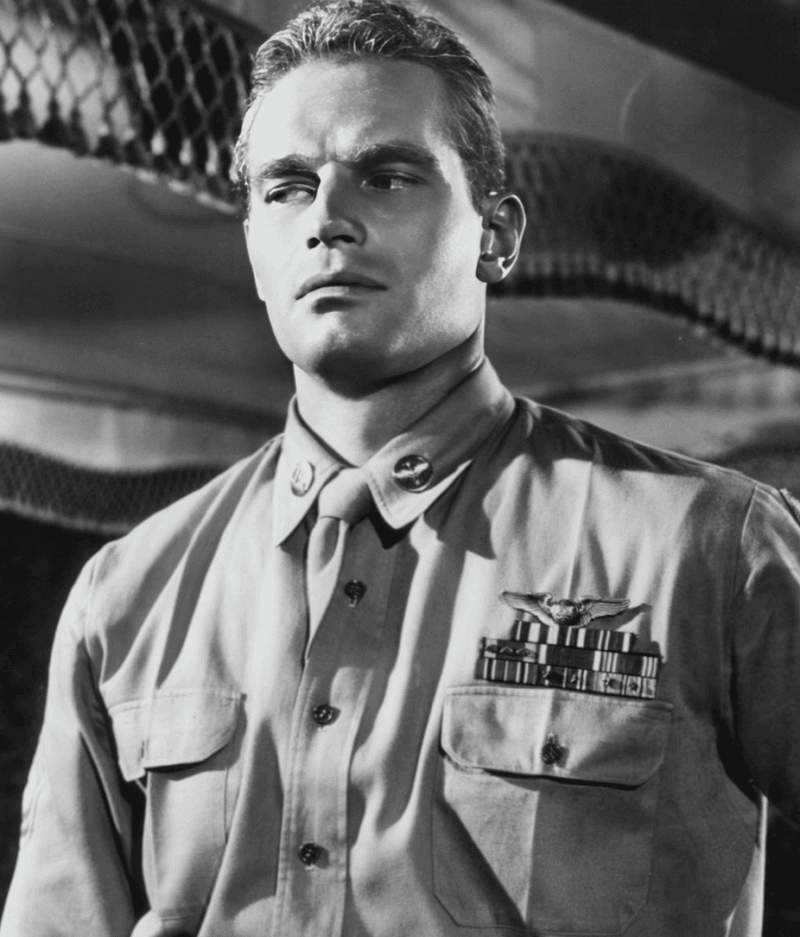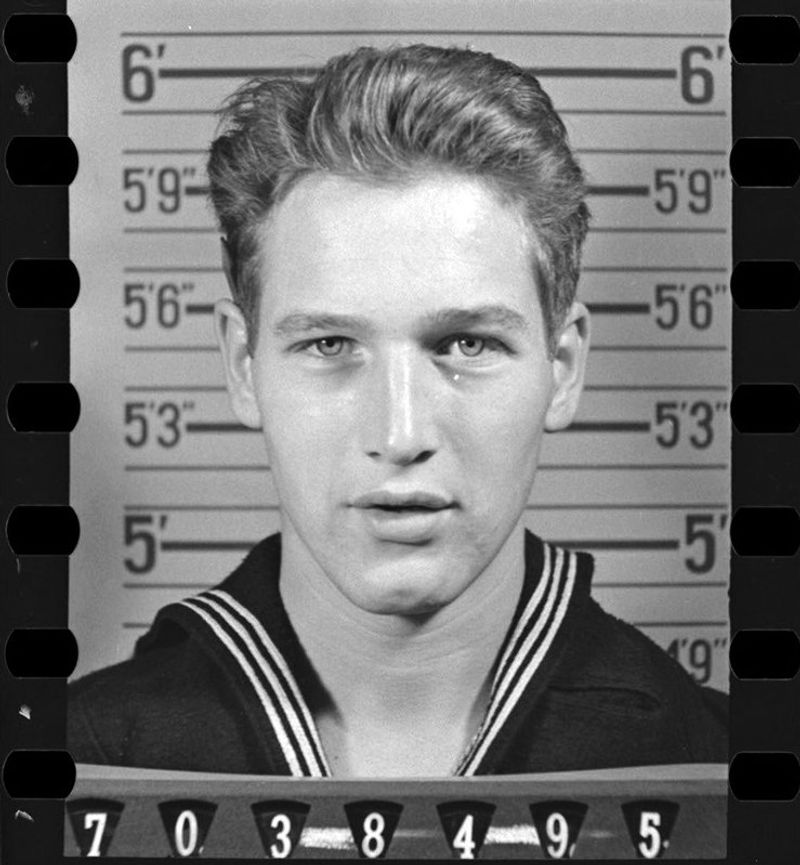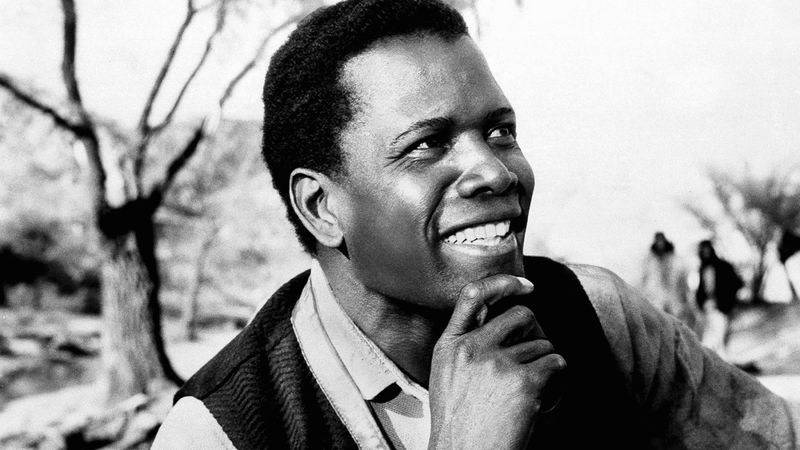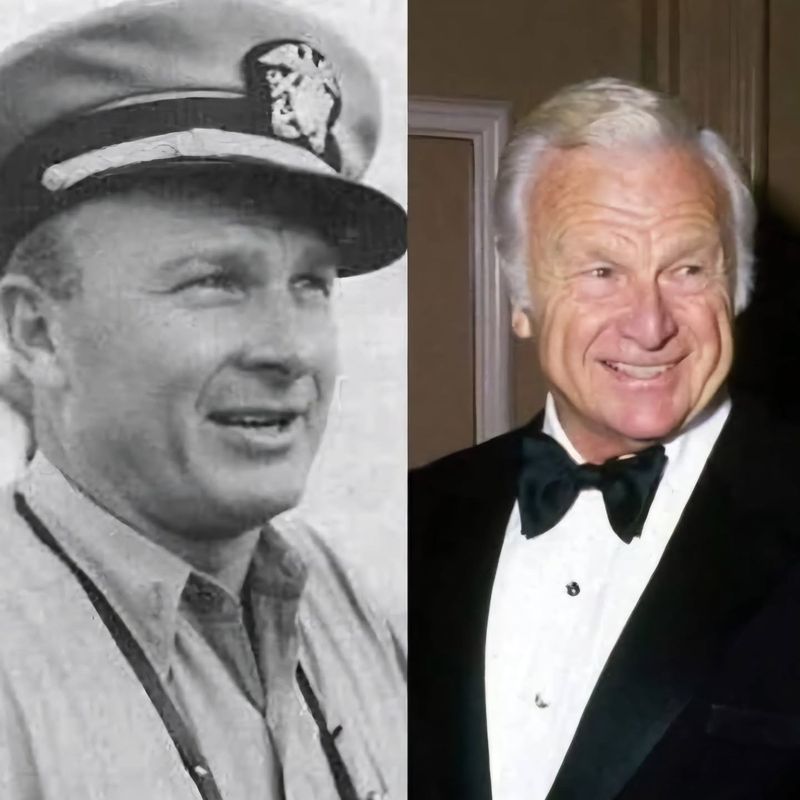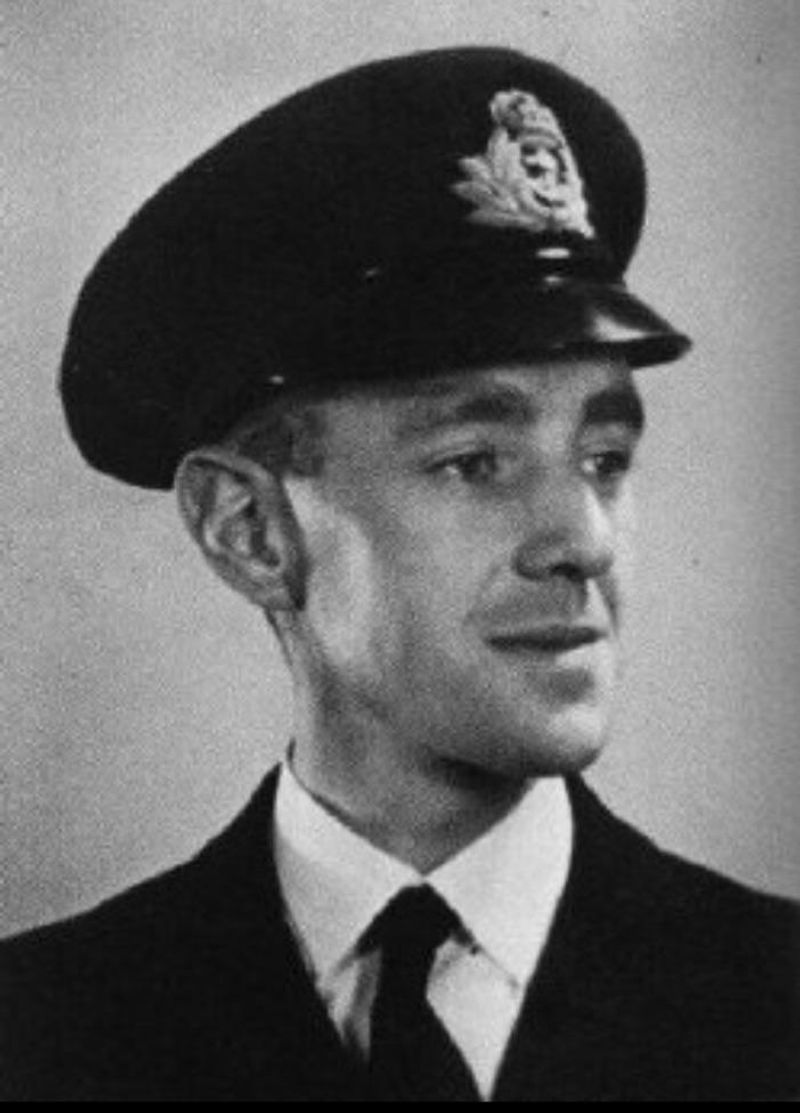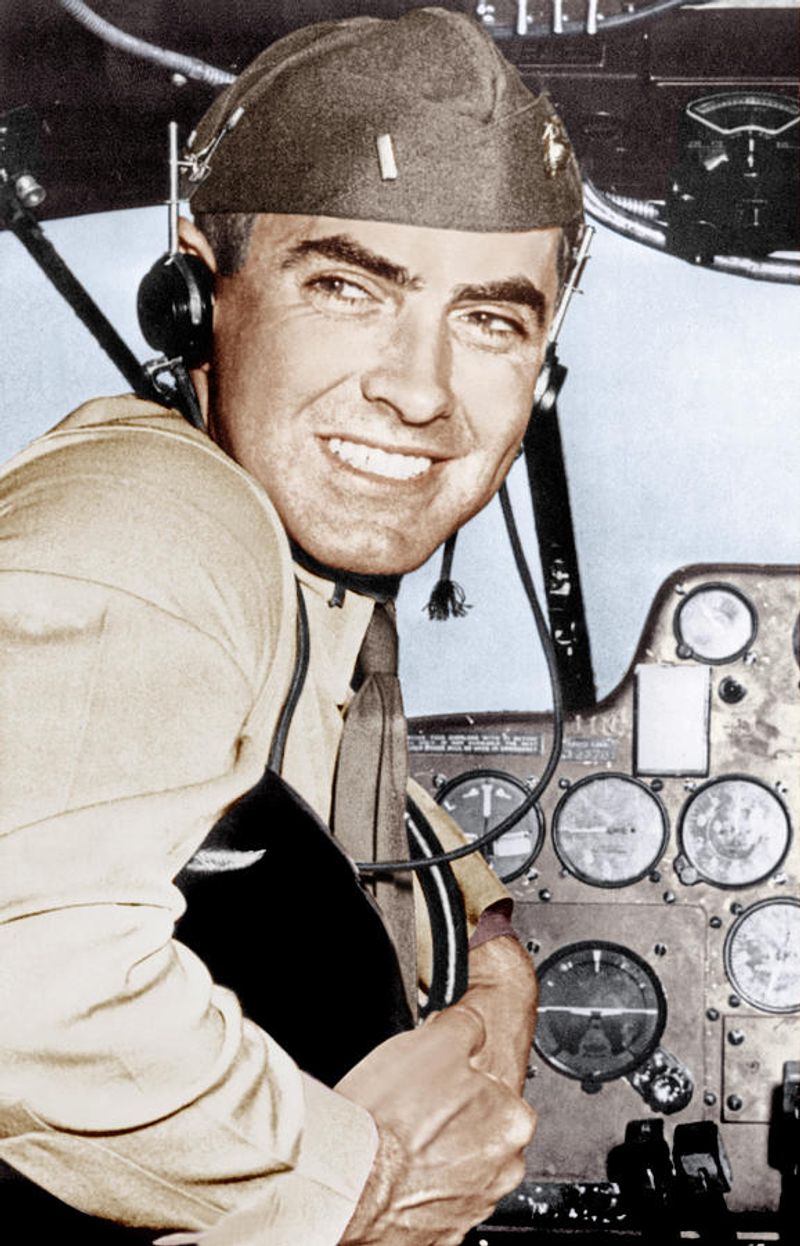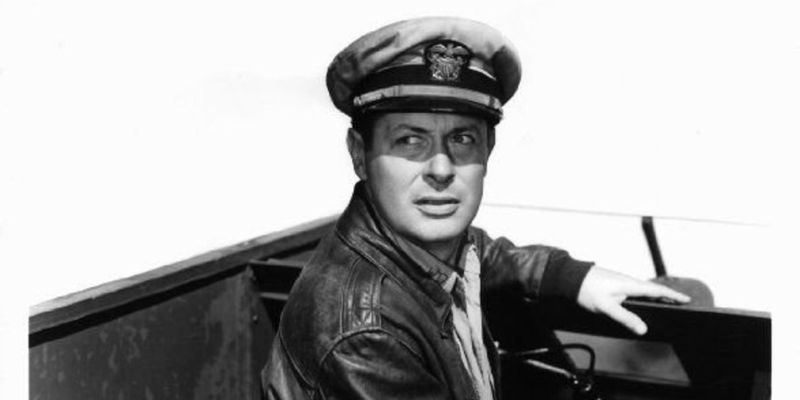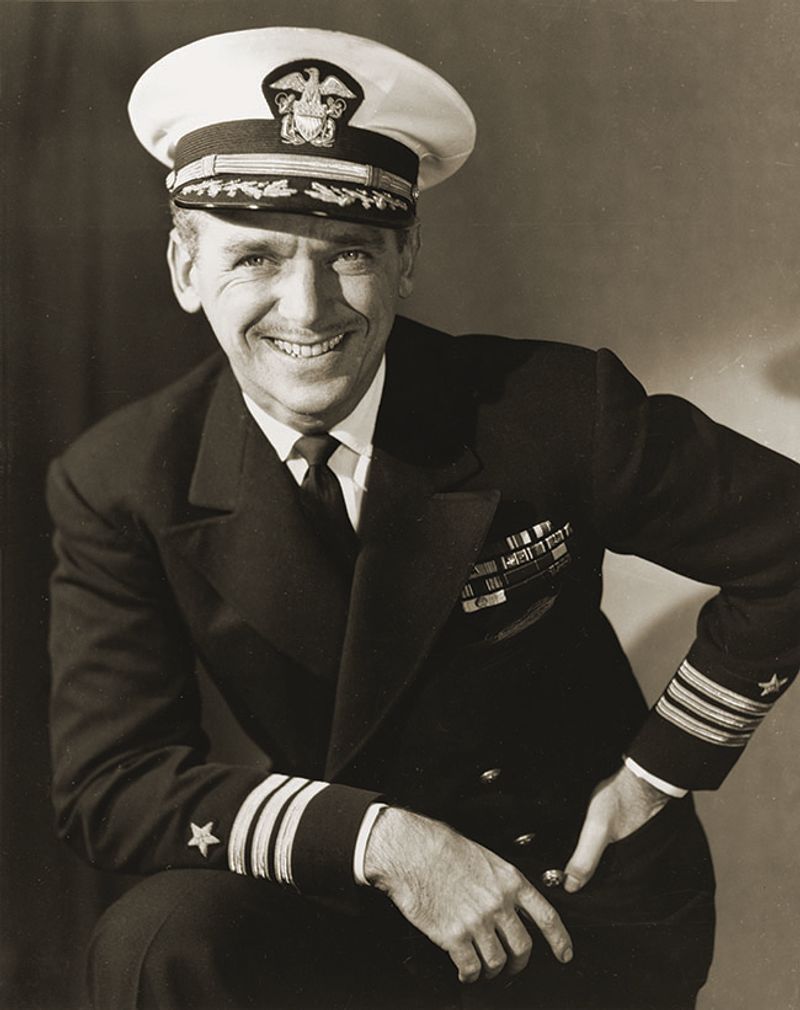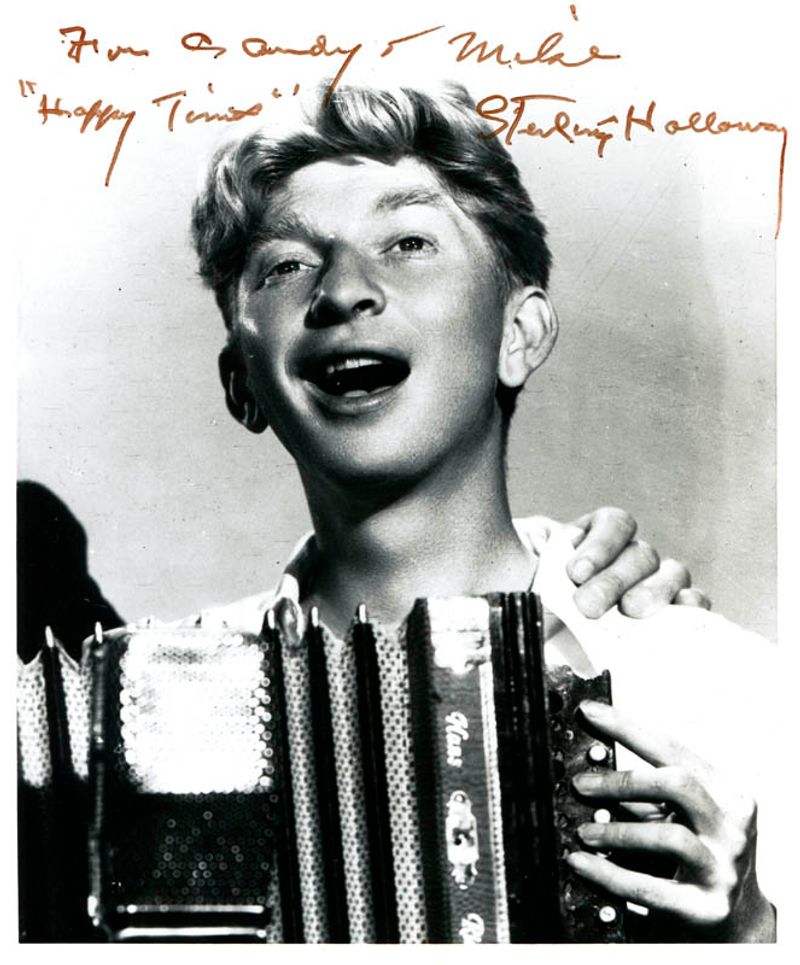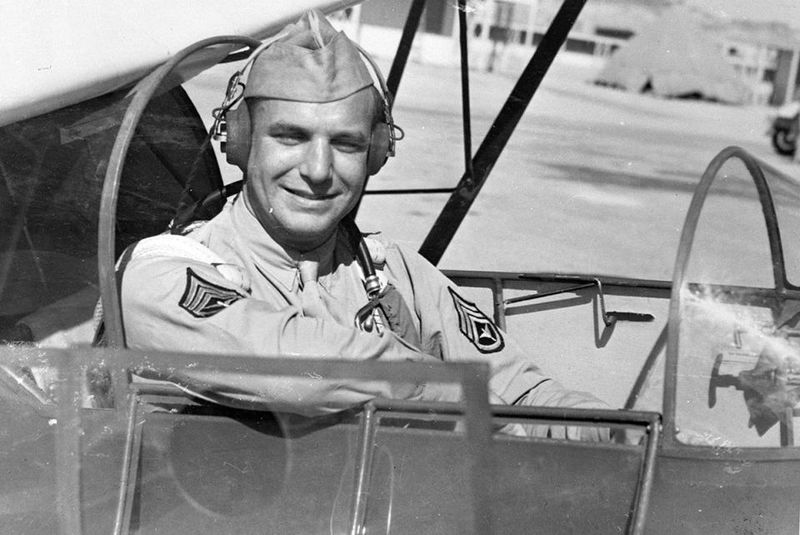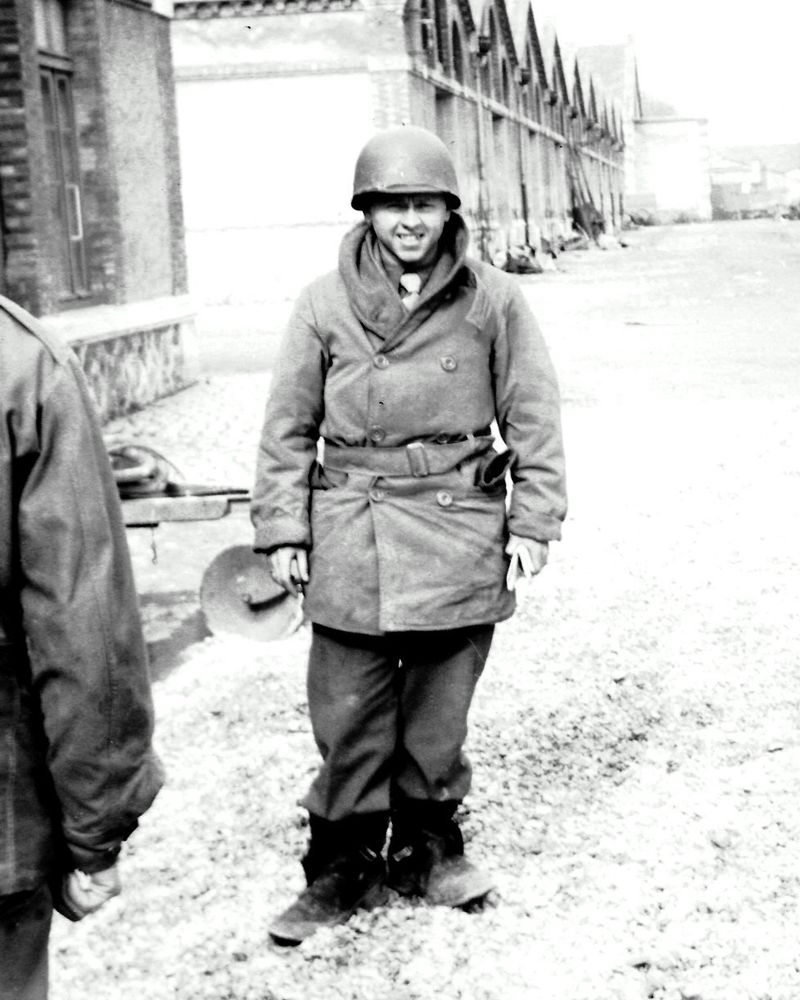Throughout history, many famous movie stars have traded in their Hollywood dreams for military service, often returning forever changed. This blog post explores the stories of 23 such individuals, detailing their lives before the war, their roles in the military, and how these experiences impacted their careers and personal lives. Each tale is unique, yet collectively, they paint a picture of courage and transformation.
1. Audie Murphy (WWII) – The Most Decorated Soldier in U.S. History
Audie Murphy’s transformation from a struggling actor to a celebrated war hero is legendary. Initially, he was a ranch hand with dreams of Hollywood fame. During WWII, he became the most decorated soldier in U.S. history, earning 33 awards including the Medal of Honor. Returning home, Murphy grappled with PTSD, a challenge he bravely faced. His role in “To Hell and Back” immortalized his heroic deeds, though the transition back to civilian life was fraught with struggles. Murphy’s legacy is one of valor and vulnerability, a testament to the profound impact of war.
2. James Stewart (WWII & Vietnam) – Bomber Pilot to Brigadier General
Oscar-winning actor James Stewart traded Hollywood glamour for the grittiness of war. Known for “Mr. Smith Goes to Washington,” Stewart flew 20 combat missions over Nazi Germany during WWII. His dedication didn’t stop there; he later served in Vietnam, rising to the rank of Brigadier General. Stewart’s wartime experiences were deeply personal, stating they were “the most important thing I ever did.” He seldom spoke of the war, but its impact was evident in his grounded post-war persona. Stewart’s life is a blend of cinematic triumphs and military honor.
3. Clark Gable (WWII) – Gunner on B-17 Bombers
Known as the “King of Hollywood,” Clark Gable took on a new role during WWII after the tragic death of his wife, Carole Lombard. He joined the Army Air Forces, flying five combat missions as a gunner on B-17 bombers. Gable returned to Hollywood with hearing damage and a transformed perspective on life and fame. His wartime service added depth to his already illustrious career. Gable’s journey from Hollywood royalty to wartime hero illustrates the profound impact of personal loss and national service.
4. Gene Autry (WWII) – C-47 Transport Pilot
The famed “Singing Cowboy,” Gene Autry swapped his guitar for a pilot’s controls during WWII. As a C-47 transport pilot, he flew troops and supplies across the Pacific, providing critical support to the Allied forces. Autry’s experiences in the war deeply influenced his outlook, instilling a greater appreciation for life. Upon returning, he resumed his entertainment career, but his wartime service remained a pivotal chapter. Autry’s story exemplifies the unexpected paths and personal growth that military service can inspire.
5. Humphrey Bogart (WWI) – Navy Sailor
Before becoming a cinematic icon, Humphrey Bogart served his country during WWI. As a sailor on the USS Leviathan, he transported troops across the Atlantic. The discipline and resilience Bogart developed during his service shaped the tough-guy persona he later portrayed on screen. Though he became famous for roles in films like “Casablanca,” Bogart’s wartime experiences grounded him in reality. His service is a testament to the character-building aspects of military life. Bogart’s story is one of transformation, from sailor to Hollywood legend.
6. Mel Brooks (WWII) – Combat Engineer
Famed comedian Mel Brooks found humor amid the horrors of war. As a combat engineer during WWII, he defused landmines during the Battle of the Bulge. This harrowing experience shaped his unique comedic style, later seen in works like “MASH” and “Hogan’s Heroes.” Brooks used humor to cope with trauma, transforming wartime experiences into creative inspiration. His story highlights the resilience and adaptability of the human spirit, as well as the power of laughter in the face of adversity. Brooks’ journey is one of courage and creativity.
7. David Niven (WWII) – British Commando
Charming and debonair, David Niven was more than a Hollywood heartthrob; he was a courageous British Commando during WWII. Serving with the “Phantom” reconnaissance unit, he fought in the Normandy invasion. Niven once remarked that his military service was “the only worthwhile thing I’ve ever done,” reflecting the profound personal impact of his experiences. Niven’s blend of charm and bravery made him a unique figure both on and off the screen. His wartime service added depth to his cinematic portrayals, making him a beloved and respected actor.
8. Kirk Douglas (WWII) – Navy Lieutenant
Before becoming Spartacus, Kirk Douglas served as a Navy Lieutenant during WWII. His role on anti-submarine patrols instilled a sense of discipline and humility, which he credited with knocking the cockiness out of him. Douglas’s military service brought depth and authenticity to his later roles. Known for his powerful performances and commanding presence, his experiences at sea informed his career and personal life. Douglas’s story is one of transformation, where the challenges of war shaped a Hollywood legend into a grounded, introspective figure.
9. Rod Serling (WWII) – Paratrooper
Rod Serling, creator of “The Twilight Zone,” drew inspiration from his time as a WWII paratrooper. Witnessing heavy casualties in the Pacific Theater, he returned with a deep understanding of humanity’s darker aspects. These experiences influenced his storytelling, infusing his work with moral complexity and eerie realism. Serling’s service added gravitas to his narratives, making him a master of suspense and introspection. His wartime memories became a rich source of creative material, shaping his legacy as a pioneer of speculative fiction. Serling’s journey is one of artistry and empathy.
10. Charles Durning (WWII) – D-Day Survivor
Future Oscar nominee Charles Durning faced the horrors of war head-on as a soldier on Omaha Beach during D-Day. Surviving a fierce bayonet battle, Durning rarely spoke of his wartime experiences, only sharing that war was “the worst thing mankind does.” His bravery and resilience were evident in his subsequent acting career, where he brought authenticity and depth to his roles. Durning’s story is one of survival and silent strength, with his military service leaving an indelible mark on his life and work. His legacy is one of courage.
11. Lee Marvin (WWII) – Marine Sniper
Known for his tough-guy roles, Lee Marvin’s real-life experiences in WWII were equally intense. As a Marine sniper in the Battle of Saipan, Marvin was wounded and forever changed by the chaos of combat. He described the experience as “the most alive I ever felt,” revealing the profound impact of war on his psyche. Marvin’s authenticity in roles like “The Dirty Dozen” was deeply rooted in his military service. His story is a testament to the transformative power of war, shaping both his career and personal identity.
12. Tony Curtis (WWII) – Submarine Crewman
Before charming audiences in “Some Like It Hot,” Tony Curtis served as a submarine crewman during WWII. His time in the Navy taught him discipline and resilience, experiences that he credited with shaping his personal and professional life. Curtis often spoke fondly of his service, describing it as the period when he first “learned how to be a man.” His journey from Navy crewman to Hollywood heartthrob exemplifies the profound influence military service can have on personal growth and career development. Curtis’s legacy is one of transformation and versatility.
13. Charlton Heston (WWII) – B-25 Radio Operator
Before becoming an epic film star, Charlton Heston served as a B-25 radio operator during WWII. Flying missions over Alaska, Heston’s service was marked by dedication and bravery. His wartime experiences fueled his lifelong advocacy for veterans, and he remained a passionate supporter of their rights. Heston’s story is one of commitment and courage, both in the military and on the silver screen. His service added depth to his performances, making him a complex and compelling figure in Hollywood history. Heston’s journey is one of heroism and activism.
14. Paul Newman (WWII) – Torpedo Bomber Radioman
Legendary actor Paul Newman nearly lost his eyesight while training as a torpedo bomber radioman during WWII. This close call with danger taught him resilience and maturity, which he carried into his Hollywood career. Newman often reflected on how the war made him “grow up fast,” influencing his approach to both life and acting. His experiences added depth to his iconic roles, making him a beloved figure on and off the screen. Newman’s story is one of growth and introspection, where war’s challenges became a foundation for success.
15. Sidney Poitier (WWII) – Army Physiotherapist
Sidney Poitier, Hollywood’s first Black leading man, served as an Army physiotherapist during WWII. His work in a psychiatric hospital provided him with a unique perspective on human resilience and adversity. Poitier often remarked that the Army was “the first time I was treated like a man,” a poignant reflection on his experiences with segregation. His service influenced his groundbreaking career, where he challenged racial barriers and became an icon of progress. Poitier’s journey is one of determination and dignity, illustrating the transformative power of military service.
16. Eddie Albert (WWII) – Coast Guard Hero
Before starring in “Green Acres,” Eddie Albert was a true hero during WWII, saving 47 Marines under fire at Tarawa. His bravery was understated; his military awards were discovered only after his death. Albert’s selfless service exemplified quiet courage, leaving a lasting impression on those who knew him. After the war, he returned to Hollywood, where his performances were infused with authenticity and depth. Albert’s story is one of humble heroism, where actions spoke louder than words. His legacy is a testament to the power of bravery and service.
17. Alec Guinness (WWII) – Royal Navy Officer
Before becoming Obi-Wan Kenobi, Alec Guinness served as a Royal Navy officer during WWII, landing troops at Sicily and D-Day. The war stripped away pretense, leaving Guinness with a grounded perspective on life. His military experiences informed his acting, adding a layer of authenticity and depth to his characters. Guinness’s service highlighted the transformative power of military duty, shaping him into a revered and respected actor. His journey from naval officer to cinematic legend is one of growth and insight, marked by both humility and honor.
18. Tyrone Power (WWII & Korean War) – Marine Pilot
1940s heartthrob Tyrone Power found a new calling as a Marine pilot during WWII and the Korean War. Flying supplies into Iwo Jima, Power’s service was marked by courage and dedication. He often remarked that “nothing in Hollywood compares” to the experiences he had during the war. Power’s military service added depth to his career, infusing his performances with genuine emotion and conviction. His dual legacy as a film star and war hero is a testament to the multifaceted nature of personal growth and service.
19. Robert Montgomery (WWII) – D-Day Naval Commander
Renowned actor Robert Montgomery played a crucial role in WWII as a Naval commander during the D-Day invasion. Leading troops ashore at Normandy, Montgomery’s leadership and bravery were exemplary. After the war, he channeled his experiences into producing war documentaries, sharing untold stories of heroism. Montgomery’s service left an indelible mark on his life and career, shaping him into a respected figure both in Hollywood and military circles. His journey from actor to war hero demonstrates the profound impact of service on personal and professional development.
20. Douglas Fairbanks Jr. (WWII) – Navy Decoy Operative
Douglas Fairbanks Jr. combined his swashbuckling charisma with daring wartime service as a Navy decoy operative during WWII. Running covert operations to mislead the Nazis, Fairbanks displayed ingenuity and bravery. Awarded multiple honors for his service, he rarely spoke of his wartime exploits, preferring to let his actions speak for themselves. Fairbanks’s transition from Hollywood star to war hero highlights the versatility and courage required in both arenas. His story is one of adventure and integrity, where the allure of cinema met the reality of service.
21. Sterling Holloway (WWII) – Army Entertainer
Famed for voicing Winnie the Pooh, Sterling Holloway brought joy to soldiers as an Army entertainer during WWII. Performing for troops, Holloway found the experience humbling, witnessing real courage firsthand. His performances uplifted spirits, providing a brief escape from the rigors of war. Holloway’s service highlighted the transformative power of laughter and music, both on the battlefield and beyond. His legacy is one of joy and resilience, where entertainment became a vital form of support for those on the front lines. Holloway’s journey is one of creativity and compassion.
22. Jackie Coogan (WWII) – Glider Pilot
Child star Jackie Coogan transitioned from the silver screen to the skies as a glider pilot in WWII. Flying dangerous missions in Burma, Coogan displayed courage and a commitment to duty. After the war, he became a staunch advocate for child actors’ rights, drawing upon his own experiences. Coogan’s story is one of transformation, where wartime service deepened his understanding of responsibility and advocacy. His legacy is marked by both his early cinematic success and his later dedication to protecting young performers. Coogan’s journey is one of growth and activism.
23. Mickey Rooney (WWII) – Army Entertainer
Once America’s top box-office star, Mickey Rooney brought his talents to the troops as an Army entertainer during WWII. Performing under General Patton, Rooney described it as “the greatest audience I ever had.” His performances lifted the spirits of soldiers, providing much-needed relief amidst the challenges of war. Rooney’s service highlighted the importance of morale in the military, and his legacy as an entertainer was enriched by his wartime contributions. His story is one of resilience and adaptability, where the stage became a battlefield for hope and joy.
